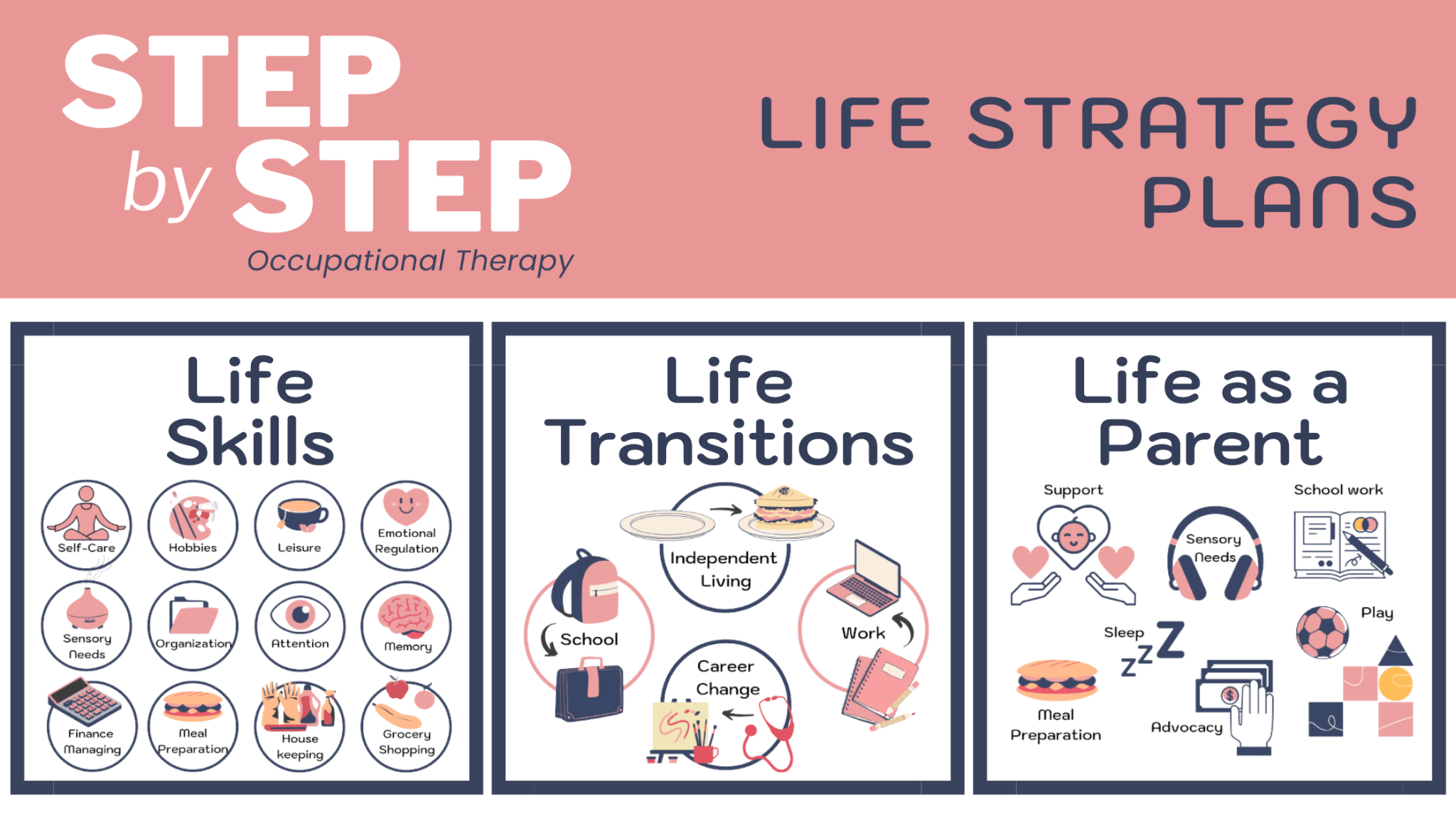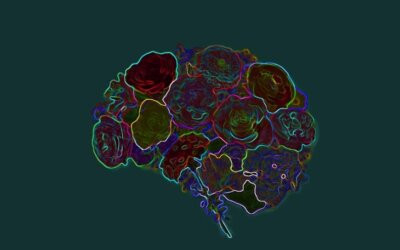What do Occupational Therapists do and what kind of changes can an Occupational Therapist help me with?
Occupational Therapists support neurodivergent individuals with participating in daily life activities that they want to do, need to do, or are expected to do. These activities could be related to self-care, productivity or leisure. Often sensory processing differences or challenges with executive functions such as planning, organization, problem-solving, etc., can impact the ability to participate in daily life activities. An Occupational Therapist can help you develop strategies tailored to your strengths and needs.
An Occupational Therapist can provide support with a variety of daily life activities such as:
- Participating in self-care tasks
- Managing your finances
- Managing household tasks such as meal preparation, grocery shopping, cleaning or organizing your home environment
- Being successful at school with coursework and extracurricular activities (this may include strategies for planning your schedule, study skills, time management skills, attention strategies, memory strategies, or any other needs you may have)
- Being successful at work
- Participating in your hobbies and interests at home or in the community
- Transition from post-secondary education to employment
- Career change
- Transition to independent living
- Sensory processing differences that impact your ability to function on a day-to-day basis
- Difficulties with interoception (being able to perceive, be aware of and interpret internal body signals) which make it challenging to develop and use coping strategies
- Difficulty managing competing demands of parenting and other activities such as work
- Struggling with planning or organising daily schedules
- Parenting a neurodivergent child or parenting as a neurodivergent parent
I have heard of Occupational Therapists working with children but how do they work with adults?
Occupational Therapists work collaboratively with adults by exploring what activities are important to them and supporting adults with engaging in those activities. Occupational Therapists use a strengths-based approach to highlight an individual’s strengths and abilities while helping them develop skills and strategies that are helpful for daily life activities.
What is neurodiversity-affirming practice in Occupational Therapy?
Neurodiversity-affirming Occupational Therapy practice affirms neurodivergent ways of being. It involves Occupational Therapists listening to the lived experiences of their clients and celebrating neurodiverse ways of being. Through neurodiversity-affirming practice, Occupational Therapists partner with their clients to support them in ways that are meaningful and helpful to the client. There is no intention or attempt to “fix” traits but rather to support clients in understanding their strengths and needs so that clients can fully participate in their life activities.
How long will it take to see changes in my life from working with an Occupational Therapist?
Everyone is unique, but most clients begin to see changes within 2-3 sessions. Changes can continue over a few sessions, a few weeks or a few months. Clients choose the goals they want to work on and the pace that is suitable for them. Clients decide when they have met their goals and whether they would like ongoing support with additional goals or whether they would like to stop sessions.
How are the Occupational Therapy sessions structured?
The first session involves an assessment to determine your goals for Occupational Therapy and what areas you are experiencing challenges with. The Occupational Therapist will likely engage you in a functional activity and observe different cognitive abilities such as memory, different types of attention, planning and organizational skills. In the next session, incomplete parts of the assessment will be completed and the Occupational Therapist will discuss how the assessment went with you. The Occupational Therapist may ask you which goal you would like to start working on. You and the Occupational Therapist will begin to co-create strategies that you can use toward your goals.
Occupational Therapy sessions are very collaborative because you are the expert of your own life. Therefore, your input into which strategies will work for you and which won’t is extremely valuable. The Occupational Therapist’s role is to partner with you to help develop a toolbox of skills and strategies that can be used in different parts of daily life activities. Part of the sessions may involve some coaching around a particular tool or strategy. Other parts of the sessions may involve the Occupational Therapist supporting you in problem-solving through how you could approach or structure an activity based on your strengths and your needs.
Should I see an Occupational Therapist or a Psychotherapist?
Occupational Therapists and Psychotherapists fulfil different roles. An Occupational Therapist can support you with practical issues related to participating in daily life activities such as self-care, productivity and leisure. Occupational Therapists use a holistic approach to support an individual with their skills and abilities and recommend environmental modifications and/or activity adaptations.
A Psychotherapist can provide counselling and mental health support for emotional or psychological challenges you are experiencing. Therefore, the type of therapist you choose will depend on your needs and goals.
Choose your plan
We customize each STEP BY STEP LIFE STRATEGY PLAN to meet your needs, your pace and move you toward achieving your goals
Connecting
The Dots
How Can Neurodivergent Individuals Benefit from Occupational Therapy?
Occupational Therapy can support neurodivergent individuals with executive functioning challenges and sensory processing differences. While psychotherapists help with social and emotional issues, Occupational Therapists provide practical support in daily activities related to self-care, productivity, or leisure.
An Occupational Therapist Can Help Me:
Build life skills that enable me to be more self-sufficient
Manage life transitions from high school to post-secondary school
Seek or adapt to my first job
Set and work towards achieving any goals that are important to me




